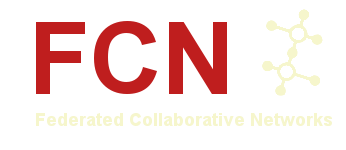Our group aims to understand and develop high-level models for both interaction among distributed Collaborative Networks (CNs) nodes and for supporting the collaboration spaces which is needed for synchronous and asynchronous co-working among the CN nodes, which is caused due to their diverse life-cycles. Main interrelated challenges include: collaboration process definition based on competencies (capabilities, capacities, conspicuities, and costs), collaboration network analysis and reference modeling (addressing both endogenous elements e.g., compositional, structural, behavioral, and functional aspects of the CN, as well as their exogenous interactions with the elements external to the CN), engineering and formalizing the commitments/agreements made by individual agents as well as their agents’ collaborative behavior, responsibility / task distribution, information/knowledge fusion, and data/service interoperation infrastructure, learning-based decision support, resource ownership and sharing, reaching common perceptions for intellectual property valuation and reward/sanction in CNs, and profit/loss allocation, among others. We address these various challenges at the group. At the meso-level, research in the group focuses on the three CN aspects of design, development, and operating principles.
In the short term, we build on top of the main research strength of the group in the area of collaborative networks, where the group has already achieved a leading position and international recognition. This concentrates on the following themes:
- Formalization and analysis of CNs and their reference modeling
- Information/knowledge fusion and interoperability
- Service digitization/integration frameworks
- Algorithms for learning and decision support in CNs
Research and development on CNs’ modeling and analysis aims at formalization and definition of theoretical and practical foundations for adaptive virtual organizations. It emphasizes the CN’s distinctions with traditional hierarchic approaches, supply chain organizations and electronic marketplaces. It is particularly focused on the distributed supervision of CNs, which is required for regulating and reasoning about the networks of collaborative relationships in dynamic virtual organizations.
Research and development on data and service interoperability for CNs focuses on generalizing the support of emerging applications in different science and industry sectors. Data interoperability research specifically focuses on data relationship discovery as well as entity/identity resolution within uncertain data source environments.
Research and development on service integration focuses on capturing and formalizing software service behavior, and providing the needed framework for digitization of business processes as software services (SaaS) in order to support their discovery and composition in collaborative networks of organizations.
Research and development on decision support in CNs develops new algorithms for machine learning to classify and reason about data, in support of decision making. In the context of FCN, the work focuses on semi-supervised learning, transfer of learning, and multitask learning.
Besides conceptual work on the above themes, we develop proof of concepts, and demonstrations with real application cases, which are then exploited to validate results within related communities through our collaborative research projects.
On the following pages, you can find an overview of the R&D projects at the group.



